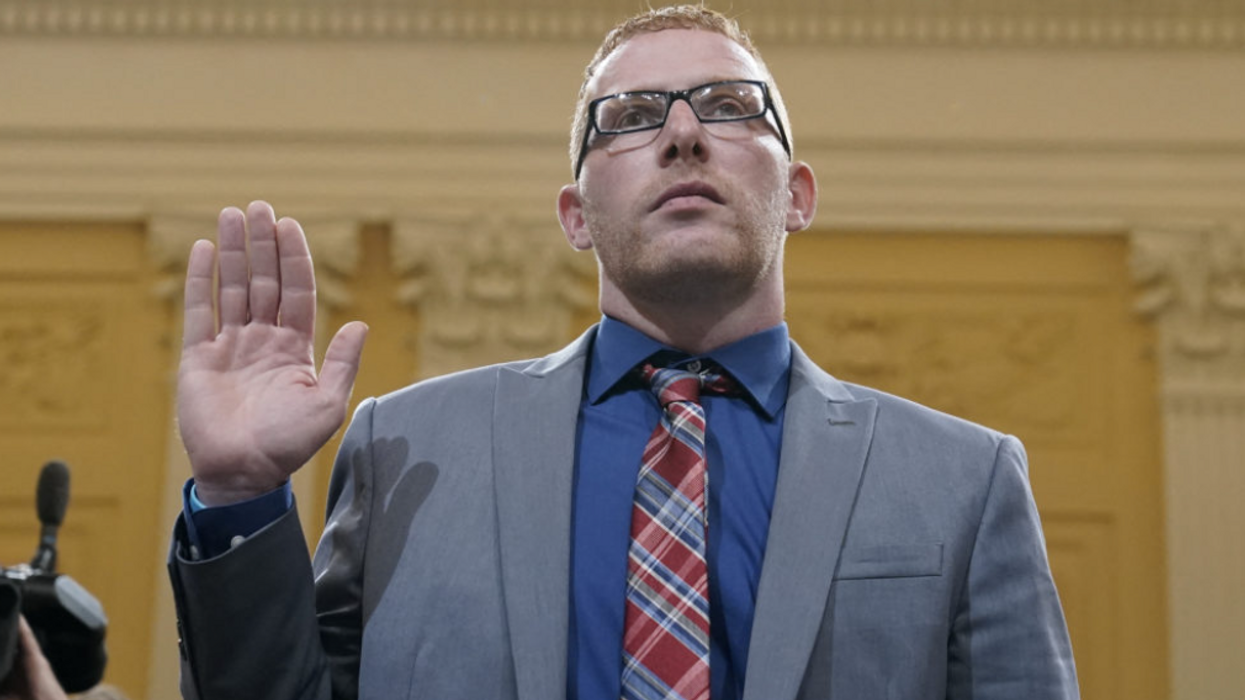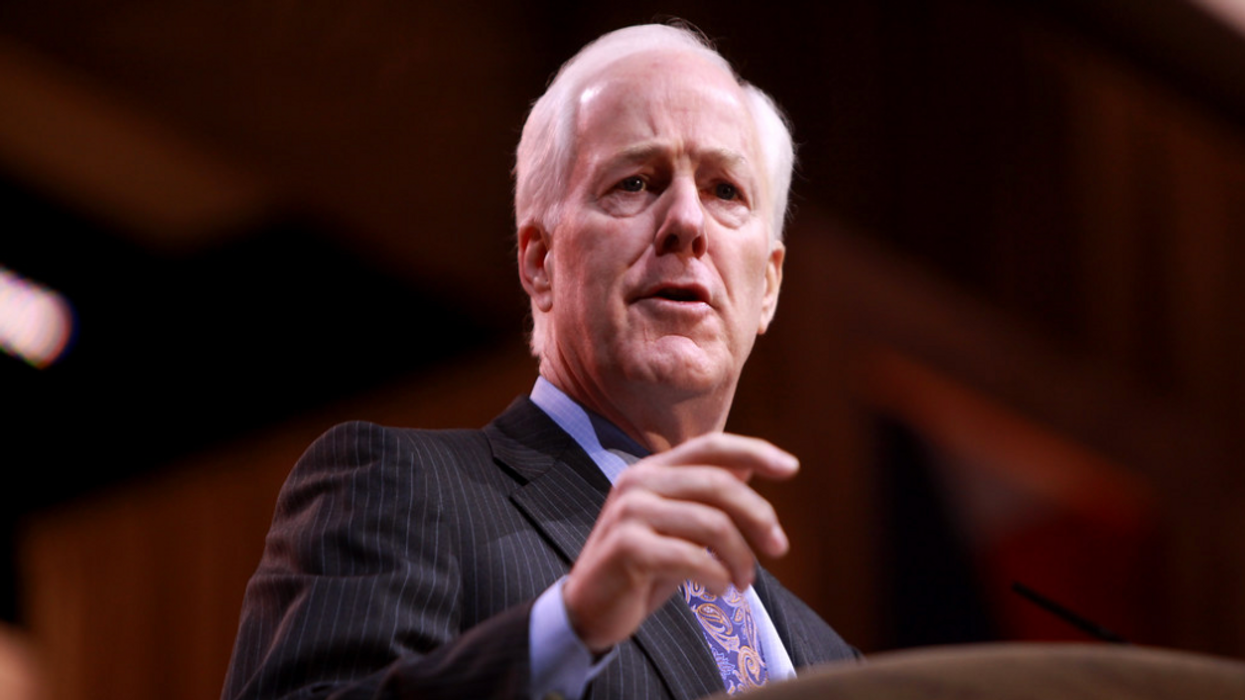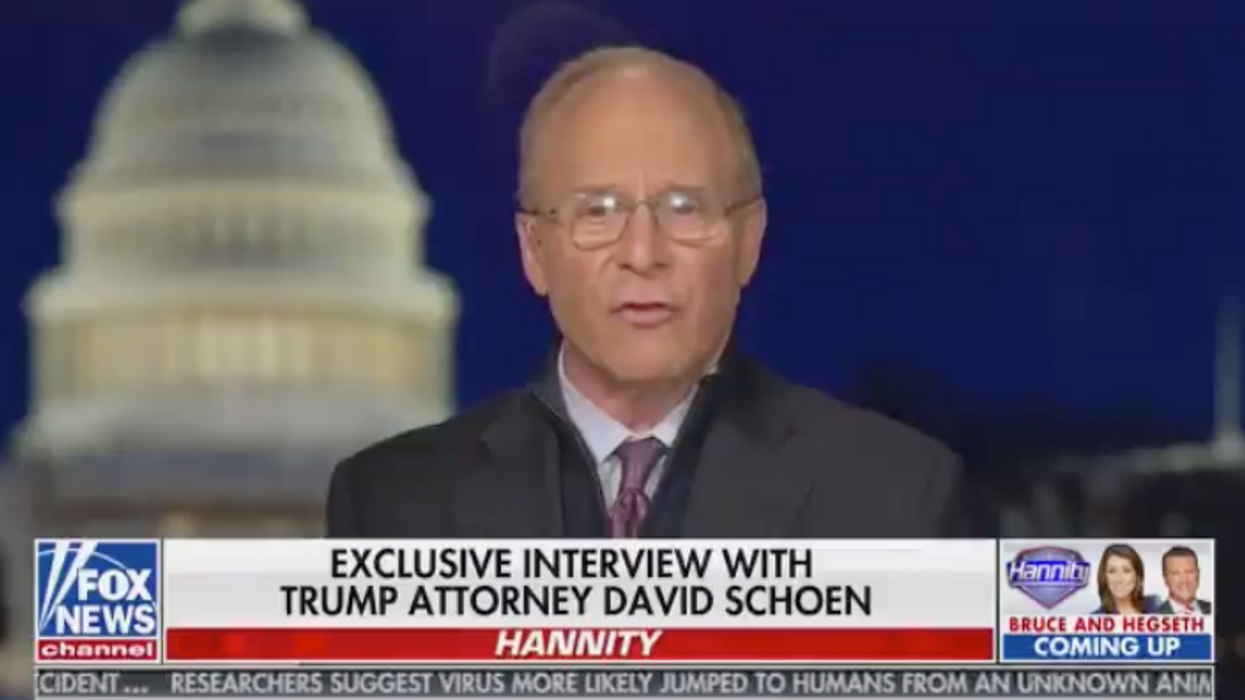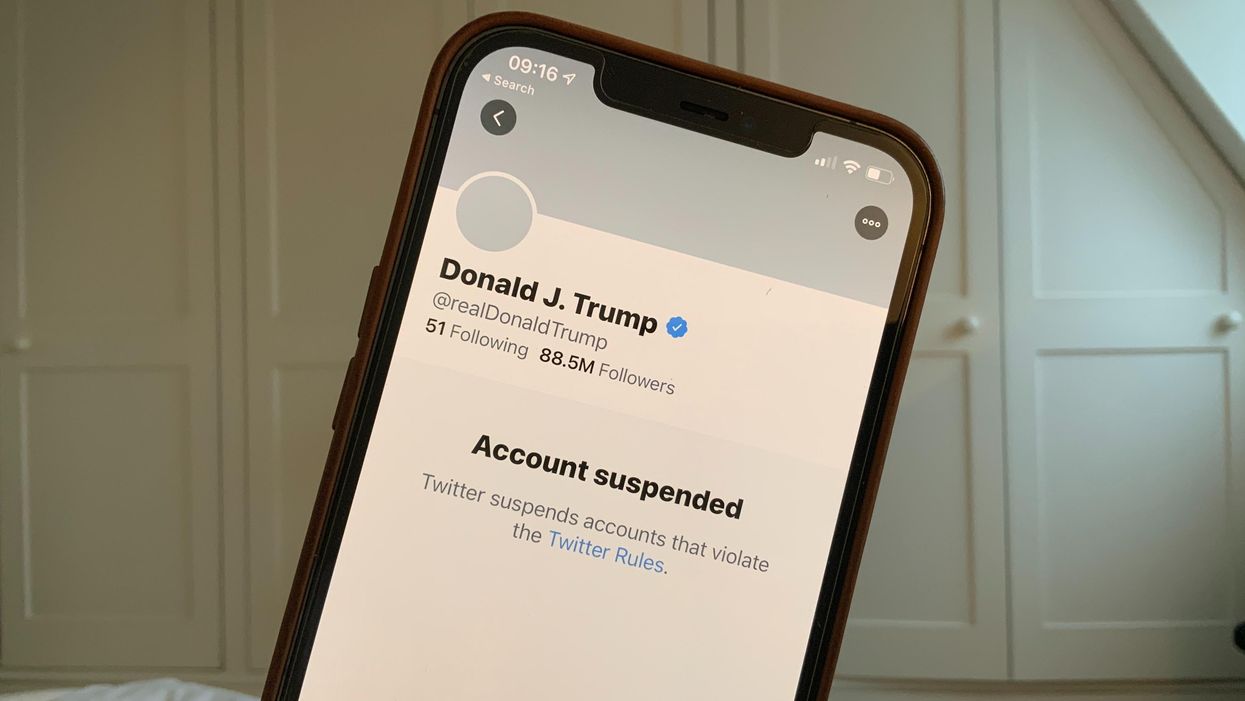Hearing: Trump Summoned Violent Militias To March On The Capitol
Donald Trump planned and led the violent insurrection at the U.S. Capitol, including sending loyalists to meet with far-right militia leaders who urged their members to come to Washington with weapons to help Trump seize a second term, yesterday's House Select Committee hearing disclosed.
The committee’s findings were alarming, including warnings in testimony from a former militia official that domestic terrorism surrounding the 2022 and 2024 elections was an ongoing threat. But the most stunning revelation came at the hearing’s close when co-chair, Rep. Liz Cheney (R-WY), said that Trump was still interfering in the 2020 election by seeking to intimidate committee witnesses, which the panel had referred to the Justice Department for prosecution.
“After our last hearing, President Trump tried to call a witness in our investigation – a witness you have not yet seen,” Cheney said. “This committee has supplied that information to the Department of Justice. Let me say one more time: we will take any efforts to influence witness testimony very seriously.”
It should not surprise anyone that Trump continues to act as if he is above the law, after the hearings have shown – almost entirely through testimony by Republicans – how his obsessive quest to stay in power flouted federal and states laws, as well as his 2017 inaugural vow to uphold the U.S. Constitution.
“January 6 was an attack on our country. It was an attack on our democracy; on our Constitution,” said Rep. Bennie Thompson (D-MS), the committee’s chair, after Cheney’s announcement and warning. “A sitting president with a violent mob trying to stop the peaceful transfer of power.”
“In a moment like that, what would you expect to see?” he continued. “You expect to see the president of the United States sitting behind the Resolute desk in the Oval Office assuring the American people that the attack would be repelled, and the threat would be dealt with… Instead, the president of the United States sent the mob.”
Swaying The Mob
The seventh House Select Committee hearing showcased the related roles of far-right militias who planned and relished ransacking the Capitol for Trump, conspiracy theorists who had no proof of a stolen election but led Trump to call on the militias, and ordinary Americans who fell under Trump’s spell and came to Washington but later saw their lives upended after being arrested for breaching the Capitol.
The hearings’ evidence showed Trump egging on his most belligerent loyalists at every turn. The evidence consisted of videotaped depositions conducted under oath, speeches by right-wing media agitators calling for a confrontation, texts between leaders of militias, and drafts of Trump’s January 6 rally speech.
The committee picked up the story on December 14, when Electoral College delegations met in state capitals and awarded Joe Biden 306 votes and Trump 232 votes – electing Biden. Four days later, renegade lawyer Sidney Powell, retired General Michael Flynn (who Trump had pardoned over lying to the FBI over his 2016 conversations with Russian agents) and former Overstock CEO Patrick Byrne (who later bankrolled the Cyber Ninjas’ amateurish post-2020 review in Arizona) were secretly brought into the White House by a staffer to brief Trump. That session, which White House legal staff quickly discovered and joined, led to heated arguments for several hours over the stolen election claims.
The conspiracy theorists could not provide any evidence to back up their claims, which had been championed on pro-Trump media. Nonetheless, they presented Trump with a draft executive order telling the Justice Department to seize voting machines in swing states – which the White House legal staff opposed. They also urged Trump to appoint Powell as a special counsel overseeing that operation, which Trump agreed to, but White House lawyers never formalized the post.
The upshot of that meeting on December 18 led Trump to send a tweet to his most fervent followers early the next morning. It referenced a report filled with conspiratorial claims – none of which proved true, according to investigations by the FBI and numerous state election and police agencies – and an invitation to militias and other true believers to come to Washington for January 6.
Trump tweeted, “[White House staffer] Peter Navarro releases 36-page report alleging election fraud 'more than sufficient' to swing victory to Trump https://t.co/D8KrMHnFdK . A great report by Peter. Statistically impossible to have lost the 2020 Election. Big protest in D.C. on January 6th. Be there, will be wild!”
The hearing then traced the planning for several Washington-based rallies and protests leading up to Congress convening on the 6th to ratify the 2020 Electoral College vote, and related activities, including caching weapons by three militias – The Proud Boys, Oath Keepers, Three Percenters. The panel played video clips from street protests and a rally on the 5th where Trump’s loudest supporters bellowed that the time for a second American revolution had arrived.
“This is nothing less than an epic struggle for the future of this country, between dark and light, between the godly and godless, between good and evil,” said Roger Stone, who Trump pardoned for illegally campaign activities on Trump’s behalf in 2016.
“Tomorrow, we the people are going to be here, and we want you to know that we will not stand for a lie. We will not stand for a lie,” said General Flynn. “I want them to know that 1776 is always an option.”
“1776! 1776! 1776! 1776!” bellowed right-wing provocateur Alex Jones, who has lost legal cases after claiming that the federal government, not a lone gunman, committed a terrible mass shooting at a grade school in Connecticut.
Liar-in-Chief
But, as the hearing have shown with mounting evidence, it was Trump who had been lying about the 2020 election, and intentionally urging his followers – in state and federal government posts, and in the street – to disrupt a peaceful transfer of power to a new presidential administration.
Trump had been repeatedly told by White House and campaign staff that he had lost the election, committee member Rep. Stephanie Murphy (D-FL) told the hearing. That message had been delivered by, among others, the top White House lawyer, Pat Cipollone, whose testified last Friday, July 8. Neither Cipollone nor his deputy attended Trump’s speech hours before Congress convened on January 6, she said, where Trump egged on insurrectionists.
“The message that President Trump delivered that day was built on a foundation of lies,” Murphy said. “He lied to his supporters that the election was stolen. He stoked their anger. He called for them to fight for him. He directed them to the U.S. Capitol. He told them he would join them. And his supporters believed him., And many headed toward the Capitol. As a result, people died. People were injured. Many of his supporters’ lives will never be the same.”
Among those supporters was Stephen Ayres, an Ohioan, who testified Tuesday that he was swept up in the fervor and traveled to Washington with friends, and, though unplanned, he was among the crowd that entered and occupied the Capitol – until, hours later, Trump finally told them to go home. Ayres was arrested, fired from his longtime job, and lost his house in the aftermath.
“It changed my life, and not for the good,” he said, after describing himself as a family man who loved his country. “Definitely, not for the, you know, better.”
Ayres described a cult-like devotion to Trump, and said that he was mesmerized by right-wing media, especially online outlets.
“President Trump is still promoting the big lie about the election,” said Rep. Jamie Raskin (D-MD), who questioned witnesses with Murphy. “How does that make you feel?”
“It makes me mad, because I was hanging on every word that he was saying – everything that he was putting out, I was following it,” Ayres replied. “If I was doing it, hundreds of thousands or millions of other people were doing it, or maybe are still doing it… Who know what the next election could come out [bring]?”
Beyond Trump’s impact on individuals was his emergence as the de facto leader of organized efforts, including by domestic white supremacist militias who saw his uncompromising bid for power as an extension of their values and cause.
“I think we need to quit mincing words and just talk about the truths, and what it was going to be was an armed revolution. I mean, people died that day,” testified Jason Van Tatenhove, a former spokesman for the Oath Keepers – who left the group in 2017 after members said the Nazi Holocaust did not happen. “Law enforcement officers died this day. There was a gallows set up in front of the capitol. This could have been the spark that started a new civil war.”
Van Tatenhove’s testimony described how white nationalists vilified anyone who supported sharing power in a more diverse society. But his takeaway was that hatred was still very much alive, and still tied to Trump’s fate in public arenas, including his probable 2024 run for the presidency.
“I do fear for this next election cycle because who knows what that might bring,” he said. “If a president that’s willing to try to instill… to whip up a civil war among his followers, using lies and deceit and snake oil, and regardless of the human impact, what else is he going to do if he gets elected again?”
Van Tatenhove’s point was echoed in the committee members’ closing remarks.
“‘American carnage,’ that’s Donald Trump’s true legacy,” said Raskin, drawing on that seemingly odd phrase in Trump’s inaugural address. “His desire to overthrow the people’s election and seize the presidency, interrupt the counting of Electoral College votes for the first time in American history, nearly toppled the constitutional order brutalized hundreds and hundreds of people. The Watergate break-in [by Richard Nixon’s operatives in 1972] was like a Cub Scout meeting compared to this assault on our people and our institutions.”
“The crucial thing is the next step,” Raskin said. “Unlike Mr. Aryres and Mr. Van Tatenhove, people who have recovered and evolved from their descent into the hell of fanaticism, Donald Trump has only expanded his big lie.”
That step includes, as Cheney pointed out moments later, intimidating a future witness for the panel – which was no different than what he did with election officials, the Justice Department, his vice president, and others after losing in 2020. Only this time, intimidating a congressional witness is against the law and there is no shield of presidential immunity. That incident, Cheney said, has been referred to the Justice Department












